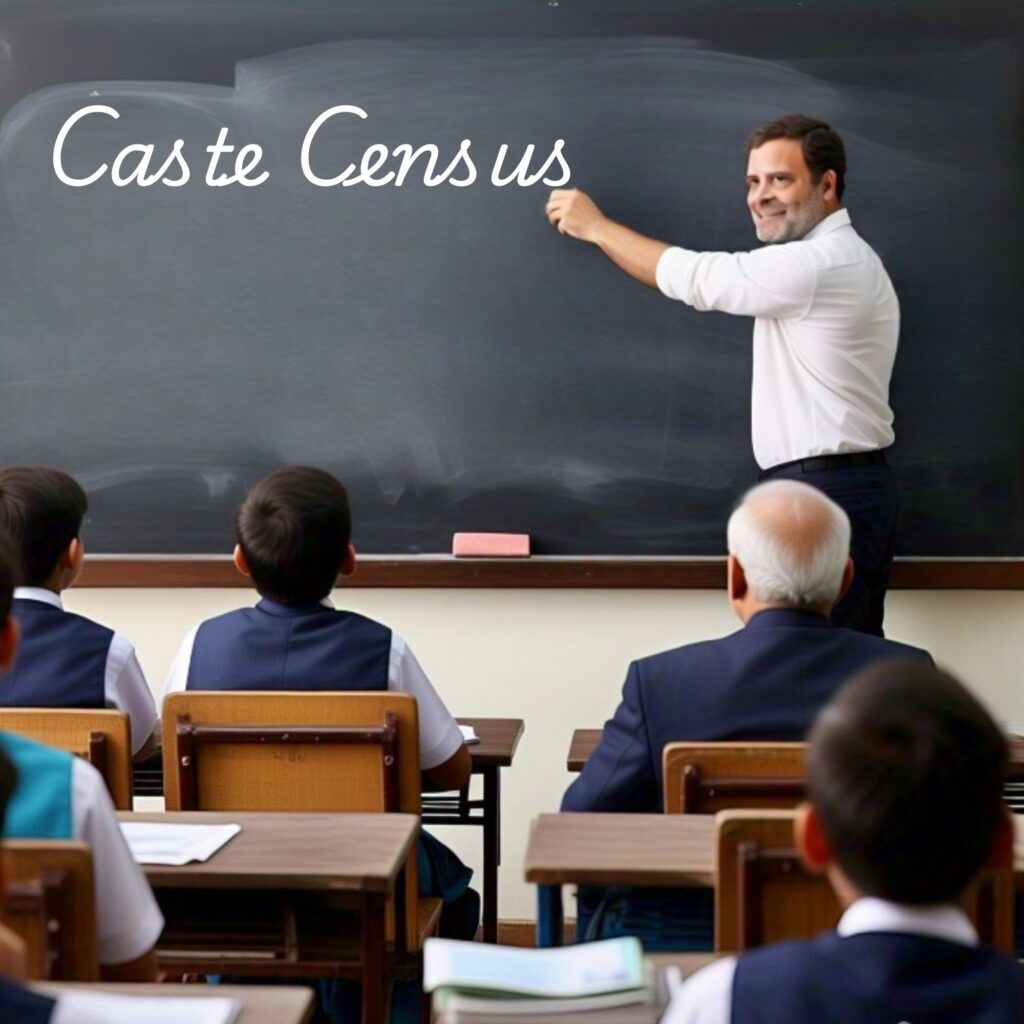The recent announcement by Union Minister Ashwini Vaishnaw regarding the inclusion of caste enumeration in the upcoming national census has sparked a political storm. While the Bharatiya Janata Party (BJP) frames this move as a step towards social justice, the Congress sees it as a victory for its long-standing demand, led by Rahul Gandhi. The decision raises critical questions—was it an independent policy shift by the Modi government, or was it a result of persistent pressure from the opposition? More significantly, does this decision indicate that Prime Minister Narendra Modi is following in the footsteps of Rahul Gandhi’s advocacy?
Rahul Gandhi’s Advocacy for Caste Census
For years, Rahul Gandhi has been vocal about implementing a caste-based census, arguing that it would promote fair representation and targeted affirmative action. The Congress leader has repeatedly emphasized that India’s democratic system requires an accurate understanding of caste demographics to formulate effective policies for historically marginalized communities.
During the recent election campaigns, Rahul Gandhi intensified his demand for a caste census, positioning it as a tool to expose inequalities in resource distribution and governance. His famous slogan, “Jitni Aabadi, Utna Haq” (As much population, as much rights), became a rallying cry, resonating with Other Backward Classes (OBCs) and scheduled communities. His relentless pursuit placed pressure on the ruling BJP, forcing them into a debate they had long avoided.
BJP’s Changing Position on Caste Census
Historically, the BJP has been hesitant to implement a caste census. In the past, party leaders argued that such an exercise would fuel identity politics and fragment national unity. PM Narendra Modi himself had dismissed the idea, stating that caste-based enumeration was being pushed by “urban naxal” intellectuals attempting to disrupt India’s progress.
However, growing political pressure, along with regional caste surveys conducted in Bihar and Karnataka, made the caste census a national issue. With opposition parties consolidating their support among OBCs and lower castes, the BJP had to reconsider its stance to avoid electoral setbacks. The eventual announcement by Ashwini Vaishnaw signaled a shift in BJP’s narrative, likely driven by political calculations rather than ideological conviction.
Congress’s Reaction: Claiming Victory?
Congress leaders wasted no time in celebrating the announcement. Senior leaders declared it a direct consequence of Rahul Gandhi’s persistence, stating that the BJP had been forced into action by the strength of the opposition’s demand. Rahul Gandhi himself highlighted that PM Modi had no choice but to implement his vision, reinforcing his image as a leader advocating for caste-based justice.
However, BJP leaders were quick to counter Congress’s claim, emphasizing that caste census was a government-driven initiative rather than a response to opposition pressure. Maharashtra BJP President Chandrashekhar Bawankule dismissed Gandhi’s demand for a census timeline, stating that he had “no right” to dictate policy matters to the government.
Additionally, BJP IT cell chief Amit Malviya pointed out that the Congress-led UPA government had initiated a caste-based survey in 2011 but had failed to release the data, citing inconsistencies. The BJP now argues that it is setting a more transparent and structured precedent for caste enumeration, unlike Congress’s failed attempt.

Political Implications
The caste census debate has far-reaching political consequences, extending beyond policy discussions. Congress sees this move as an opportunity to strengthen its appeal among OBCs, Dalits, and marginalized communities, consolidating a support base that has traditionally swung between different parties.
For the BJP, the decision appears to be a strategic maneuver aimed at neutralizing opposition demands while controlling the narrative. Rather than allowing Congress to define caste census as a victory of its advocacy, the BJP aims to frame it as a move for national unity rather than political gain. The upcoming elections will likely witness both parties vying for credit, making caste enumeration a centerpiece of electoral strategies.
Is Modi Following Rahul Gandhi’s Lead?
The key question remains—does the BJP’s caste census decision indicate that Modi is bound to follow Rahul Gandhi? The answer lies in the political compulsions that define governance. While BJP may argue that the decision was made independently, it is undeniable that Rahul Gandhi led the conversation on caste census, forcing the issue into the national spotlight.
However, this does not necessarily mean that Modi is following Gandhi; rather, it suggests that political survival necessitates adapting to evolving public discourse. In a democracy, no leader can entirely ignore dominant social and political demands. Modi’s caste census decision reflects the reality that Rahul Gandhi’s advocacy resonated with a critical voter base, compelling the BJP to incorporate it into their governance strategy.
The caste census is no longer just a policy initiative—it has become a political battleground between India’s two major parties. Rahul Gandhi’s push for caste enumeration has undeniably influenced the national narrative, forcing the BJP to respond with its own version of the process. Whether this is a genuine shift in governance or a political maneuver, the implications of caste-based enumeration will shape India’s socio-political landscape in the coming years.
As the debate intensifies, both parties will continue to position themselves as champions of social justice, each claiming credit for a policy that has the potential to redefine India’s caste dynamics. With elections approaching, the caste census is set to be one of the most significant talking points, influencing both voter sentiment and governance strategies.



